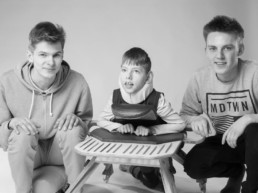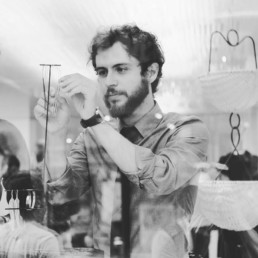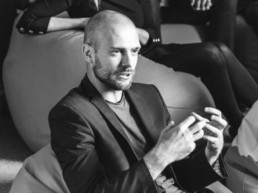Buy Social Europe B2B – bringing the social procurement movement in Europe to the next level
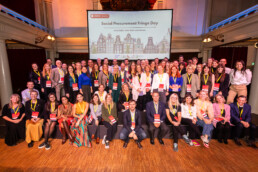
-
A new transnational initiative – Buy Social Europe B2B – is bringing the social procurement movement in Europe to a next level, further unlocking the $500 billion market opportunity for social enterprises
-
Buy Social Europe B2B gathers a consortium of 23 partners, led by Euclid Network – the European Social Enterprise Network, who will cooperate to accelerate trade partnerships between mainstream and social enterprises in 17 countries in Europe
-
The initiative receives ≈0.5 million funding from the European Union and SAP and officially launches at the Social Enterprise World Forum 2023 in Amsterdam
-
Buy Social Europe B2B officially partners with the People and Planet First movement and verification for social enterprises and opens doors for new co-funders and partners to join
In our rapidly changing world, we are increasingly aware of pressing global social and climate challenges, and the need for a more inclusive and sustainable economy. Growing social and legislative pressures are urging companies to firmly integrate sustainability into their business strategies and operations. The concept of social procurement – buying from social enterprises that put people and the planet first – has emerged as a powerful strategy for sustainability. It unites purpose and profit for a better tomorrow, allowing mainstream enterprises to source the goods and services they need, while adding impact, innovation and diversity into their supply chains.
A new transnational initiative – Buy Social Europe B2B – has now been officially launched, during the 2023 Social Enterprise World Forum week in Amsterdam, The Netherlands. It will take the social procurement movement in Europe and globally to the next level in the years to come. With 23 partners from 17 countries so far, social procurement pioneers from across Europe and the world join forces. The initiative unites the longest-standing and most experienced experts in the field of social procurement globally together in one movement. The movement this way can build on decades of experience by its key partners, well-recognised and respected social enterprise international and national Buy Social networks and ecosystem actors. The set-up of the consortium and partners aim to offer a one stop shop for social procurement through a network of mainstream and social enterprise partners with an international, as well as local reach.
The momentous unification of partners and radical collaboration will help to substantially increase awareness, capacity building and match making opportunities for both sides of the supply and demand spectrum of social and mainstream enterprises. The impact: more successful trade partnerships between mainstream and social enterprises, more long-term opportunities to increase innovation through partnerships, and positive progress in the transition towards a new economy in the next few years.
Buy Social Europe B2B has so far received €0.5m funding from the European Union and the multinational software company SAP, long-time expert and business leader in the social procurement space. In addition, consortium partners each co-fund at least 10% of activities taking place. New co-funding partners are welcome and can contact: .
Buy Social Europe B2B Activities:
The funding received so far for the initiative and activities by its partners has already delivered valuable results that are important for the development of the social enterprise sector, increasing social procurement spend and presence of strong (inter)national and local Buy Social B2B markets, and there is more to come. Within the next year, Buy Social Europe B2B will aim to:
- Map with all partners the ecosystem and landscape of social enterprise suppliers and mainstream enterprise buyers across 17 markets, including to aggregate the data across partners into a European level database and produce a market insights report on findings;
- Generate greater visibility and understanding of social entrepreneurship and social procurement through campaigns, development and sharing of best practices and case studies of successful B2B trade partnerships;
- Assess the needs and building capacity of social and mainstream enterprises and intermediary organizations to increase trade-readiness across the sector;
- Enhance cooperation and value chain integration between social and mainstream enterprises through supplier identification, verification of social enterprises, further development and provision of matchmaking services, and organization of match-making events;
- Build a strong business case to convince more local, national and European policy makers, funders and investors to make long-term strategic investments in the field of social procurement, to increase support to Buy Social Europe B2B partners and key intermediary organizations developing the market, therewith accelerating the transition towards a more socially inclusive and sustainable economy.
Advancing Social Procurement in the EU
In 2021, the European Commission launched its ‘once in a decade’ EU public policy, the European Commission Social Economy Action Plan (SEAP). The plan aims to enhance social investment, support social economy actors and social enterprises to start-up, scale-up, innovate and create jobs. Over €2.5 billion will be invested in the sector over the course of the next few years. Further, the UN General Assembly historically adopted a new UN resolution on the Social and Solidarity Economy earlier this year.
These momentous policy frameworks are the result of years of collaborative work by governmental and social enterprise and social economy sector ecosystem actors on how to effectively transition to a more socially inclusive and sustainable economy and society, and accelerate progress towards reaching the UN Sustainable Development Goals (SDGs) by 2030.
In the transition towards this new economy, social procurement is perceived to be a crucial lever and key opportunity, if not the most important lever and opportunity of all. According to McKinsey, two-thirds of the average company’s environmental, social, and governance (ESG) footprint lies with suppliers. The overall value of the social procurement market was recently estimated to be a $500+ billion market opportunity for real impact, by BCG and Yunus Social Business. The European Social Enterprise Monitor highlights that “more corporations buying social can transform the European social enterprise sector”.
With social procurement providing a pivotal opportunity in the transition towards a new economy, momentum is in place to substantially boost funding and investment in the sector and create supportive policy frameworks and legislation to ensure social procurement is feasible and its presence will increase.
Along these lines, in 2022, the European Commission launched a call for proposals, for existing key actors in the market. Aim of the call: to boost the further development of European and local Business 2 Business (B2B) social procurement markets and increase trade partnerships between mainstream and social enterprises. “Buy Social Europe B2B” was one of the key awarded projects.
Learn more about the initiative and join the Buy Social European and global movement today as social enterprise, mainstream enterprise, funder, or (inter)national social enterprise network, here: https://buysocialeuropeb2b.eu/
———————————————-
About Buy Social Europe B2B and the partner consortium
Buy Social Europe B2B empowers social and mainstream enterprises to find each other and forge sustainable trade partnerships. Co-funded by the European Commission and SAP, our coalition gathers 23 leading experts and practitioners in the field of social procurement. Together we’re creating a network of trusted partners, building the capacity and trade readiness of both social entrepreneurs and mainstream businesses. We’re gathering data and best practices, and we’re raising the awareness about social procurement and social entrepreneurship across Europe and around the world. Learn more about the partners here.
For more information contact:
Wieteke Dupain,
Helen Maynard-Hill,
Plamena Dimitrova,
Contact person in Latvia – Māra Skuja,

